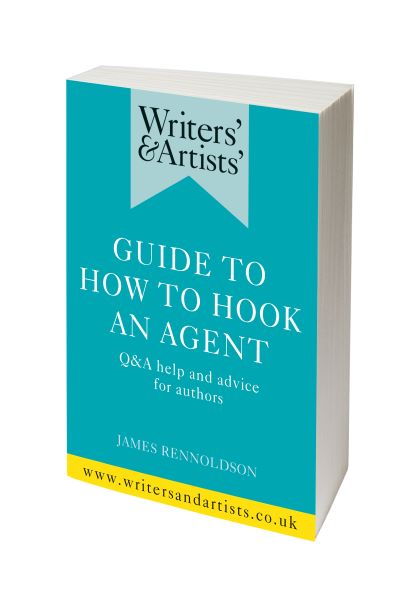Does it matter if you submit your book to 'new' or more established literary agents? In this extract from Writers' & Artists' Guide To How To Hook an Agent — a quick-fire introduction to the process of gaining literary agent representation — James Rennoldson looks at a question asked by many authors in the midst of searching for representation...

There are pros and cons in either case but the single most important thing to keep in mind bear is: have you found the right agent to champion your book?
Writing a book and finding an agent to represent it is hard, so if an agent’s literary tastes line up to the manuscript you’ve written then why discriminate?
In doing your research use the Writers’ & Artists’ Yearbook, use Twitter, use Google and YouTube to read and watch agent interviews, as well as paying attention to recently published books that have done well in your corner of the market. Working in this way means it shouldn’t be too long before you’re left with a list of agents to approach: some relatively new to the role (albeit with an industry background, such as in the rights or editorial departments of a publisher, or having been at an agency to gain experience) and with only a few clients to their name; and some who have been in the business for ten years and up.
It’s only natural to start taking the extent of someone’s know-how into consideration at this stage, but it shouldn't cloud your judgement too much: young or old, masses of expertise or just a handful of clients, if there’s something about an agent that gives you the sense that they’ll love your writing then you’re doing yourself a disservice if you don’t send it their way.
The team of editors responsible for compiling the Listings sections of the Writers’ & Artists’ Yearbook have taken the decision to back up this stance. All contact information for literary agencies is presented as objectively as possible: there’s a word limit, large agencies appear in the same format as those that are more boutique, and newly formed agencies sit alongside companies founded decades ago. Agencies based in London are also not listed any differently to those elsewhere in the UK.
WORKING WITH AN ‘ESTABLISHED’ LITERARY AGENT
Being represented by someone with a strong list of authors means you benefit from that agent’s obvious experience. Great confidence should be taken in their desire to represent your writing; their existing responsibilities would no doubt have made it much easier to turn your book away, so your work must have real appeal. But while it’s a huge compliment for an agent with a healthy list of authors to have made time for you and your book, inextricably linked to this comes a potential fly in the ointment: how much of their time will they be able to devote to you?
Pay close attention to agent’s lists, as they could be misleading. How often are their authors having work published (i.e., does their list contain research-intensive non-fiction authors or enigmatic literary fiction novelists)? Does that list include author estates? Does it include debut authors whose books are yet to publish? As an inexperienced author, there’s little doubt you’re going to benefit from your agent’s writing guidance, industry knowhow, and proven ability to broker deals with publishers, but it’s important to recognise that every author they represent generates work: new drafts submitted, publicity schedule queries, rights to sell, editorial concerns, royalty statements to chase and more. Among all of this, what about the development of your manuscript? In discussing how you might work with one another during a pre-representation meeting, why not take the opportunity to find out more about how often you might meet your agent ahead of Book One being published? Would you be more than happy to work on the basis of only being available to meet with your agent every few months? This might suit some writers more than others, and is worth bearing in mind ahead of sending off your submission.
WORKING WITH A 'NEW' LITERARY AGENT
Just because an agent is developing a client list, it doesn’t mean they are inexperienced. They are highly likely to have been around the publishing industry for a significant period of time, just not as a literary agent outright. Their previous role, for example, could have been as a reader within an agency before working their way up, or in the rights or editorial team at a publishing house. Could their knowledge of working on the other side of the industry offer you access to great contacts, and therefore make the difference in getting the best deal for your book?
One other reason not to discriminate against getting in touch with agents who appear relatively inexperienced is the excellent advantage of linking up your writing and beginnings of your career with the time they’ll have for you and their hunger to succeed. With fewer authors to occupy them, the chances are greater of one-to-one editorial advice as well as general availability throughout when it comes to dealing with publishers or attending writing or industry-centric events for the first time. This might be the sort of reassurance and guidance that's crucial to building your confidence as you make the transformation from aspiring writer to published author.
Written in Q&A format, the Writers' & Artists' Guide To How To Hook an Agent is an introduction to the process of submitting a manuscript to literary agents, and is directly inspired by popular questions asked by writers that have attended our long-running series of events of the same name. If you're looking for a literary agent to represent your manuscript order your copy here, or to find out about our latest events click here.
Comments